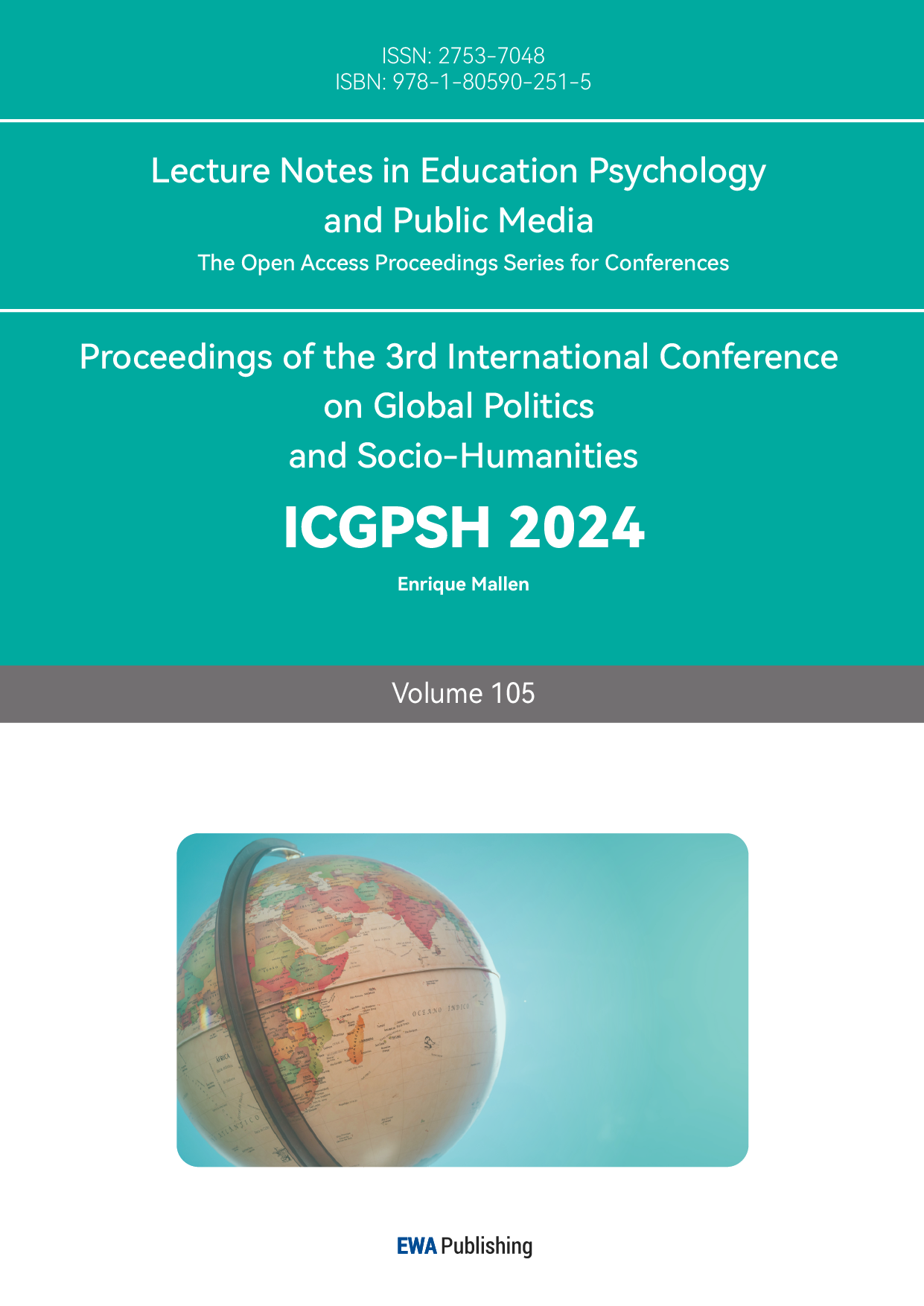References
[1]. Thorson, A. R. (2018). Investigating the relationships between unfaithful parent’s apologies, adult children’s third-party forgiveness, and communication of forgiveness following parental infidelity. Journal of Social and Personal Relationships, 36(9), 2759–2780. https: //doi.org/10.1177/0265407518799978
[2]. Yaffe, Y. (2020). Systematic review of the differences between mothers and fathers in parenting styles and practices. Current Psychology, 42(19), 16011–16024. https: //doi.org/10.1007/s12144-020-01014-6
[3]. Collett, J. L., Vercel, K., & Boykin, O. (2015). Using identity processes to understand persistent inequality in parenting. Social Psychology Quarterly, 78(4), 345–364. https: //doi.org/10.1177/0190272515607493
[4]. Wilkinson, D. E., & Dunlop, W. L. (2020). Both sides of the story: Narratives of romantic infidelity. Personal Relationships, 28(1), 121–147. https: //doi.org/10.1111/pere.12355
[5]. Russell, V. M., Baker, L. R., & McNulty, J. K. (2013). Attachment insecurity and infidelity in marriage: Do studies of dating relationships really inform us about marriage? Journal of Family Psychology, 27(2), 242–251. https: //doi.org/10.1037/a0032118
[6]. Josselson, R., & Hammack, P. L. (2021). Essentials of Narrative Analysis. In American Psychological Association eBooks. https: //doi.org/10.1037/0000246-000
[7]. Smith, J. A., & Nizza, I. E. (2021). Essentials of Interpretative Phenomenological Analysis. In American Psychological Association eBooks. https: //doi.org/10.1037/0000259-000
[8]. Parker, G., Tupling, H., & Brown, L. B. (1979). A Parenting Bonding Instrument. British Journal of Medical Psychology. https: //doi.org/10.1111/i.2044-8341.1979.tb02487.x
[9]. Wilhelm, K., Niven, H., Parker, G., & Hadzi-Pavlovic, D. (2004). The stability of the Parental Bonding Instrument over a 20-year period. Psychological Medicine, 35(3), 387–393. https: //doi.org/10.1017/s0033291704003538
[10]. Liu, L., Zhou, S., Chu, Y., Yang, H., & Liu, Q. (2009). Reliability and Validity of Parental Bonding Instrument-Chinese Version in College students. Chinese Journal of Clinical Psychology. https: //doi.org/10.16128/j.cnki.1005-3611.2009.05.043



